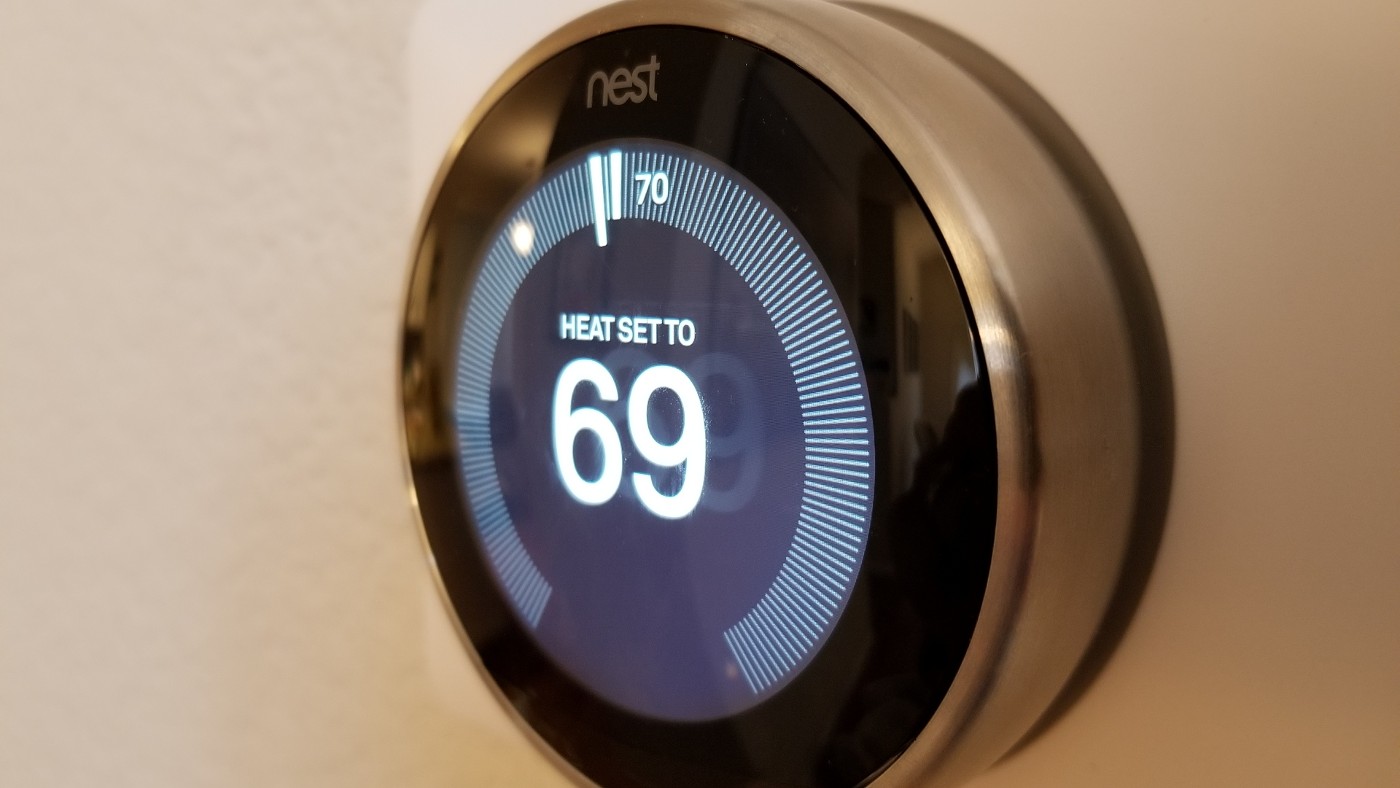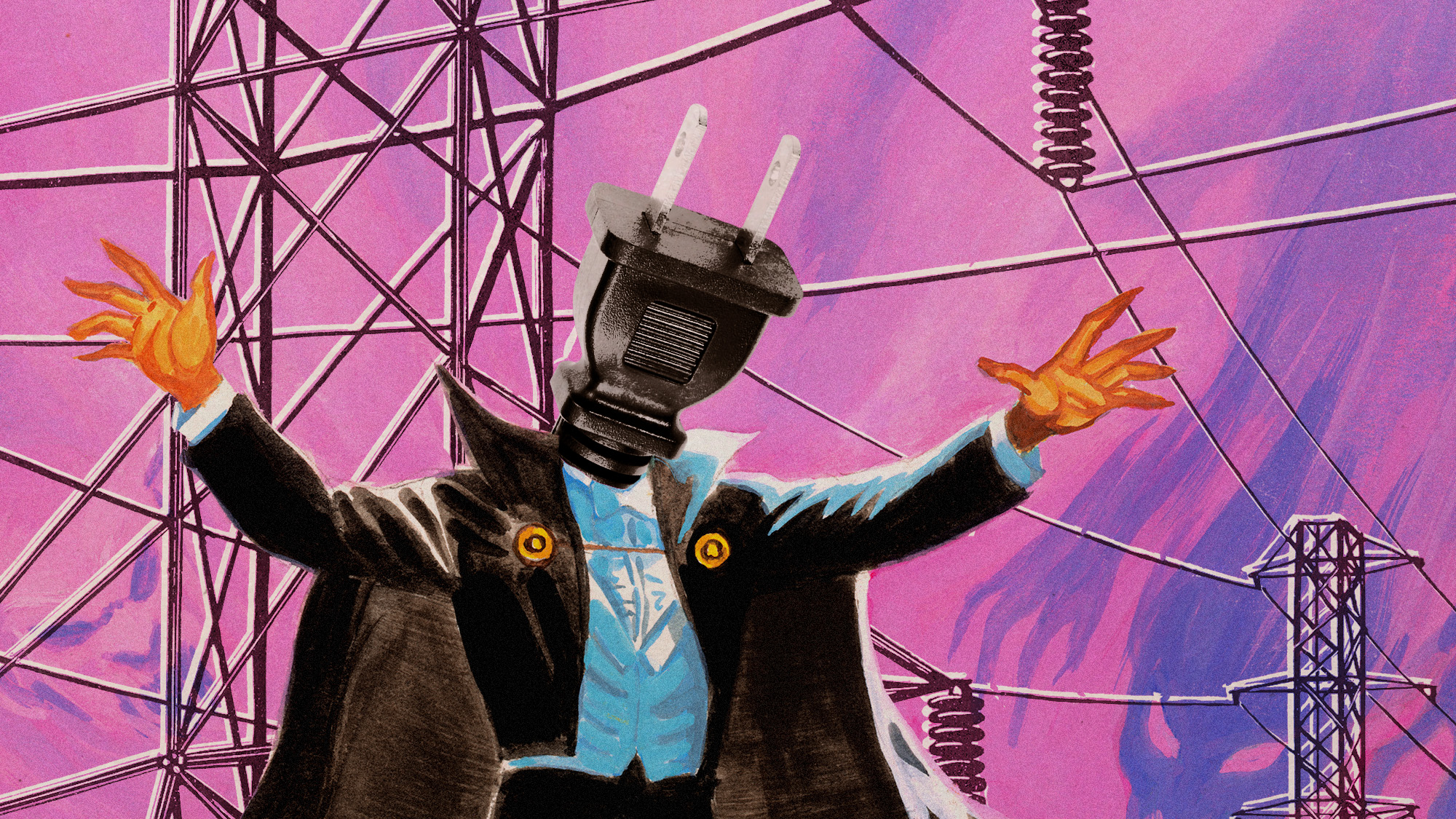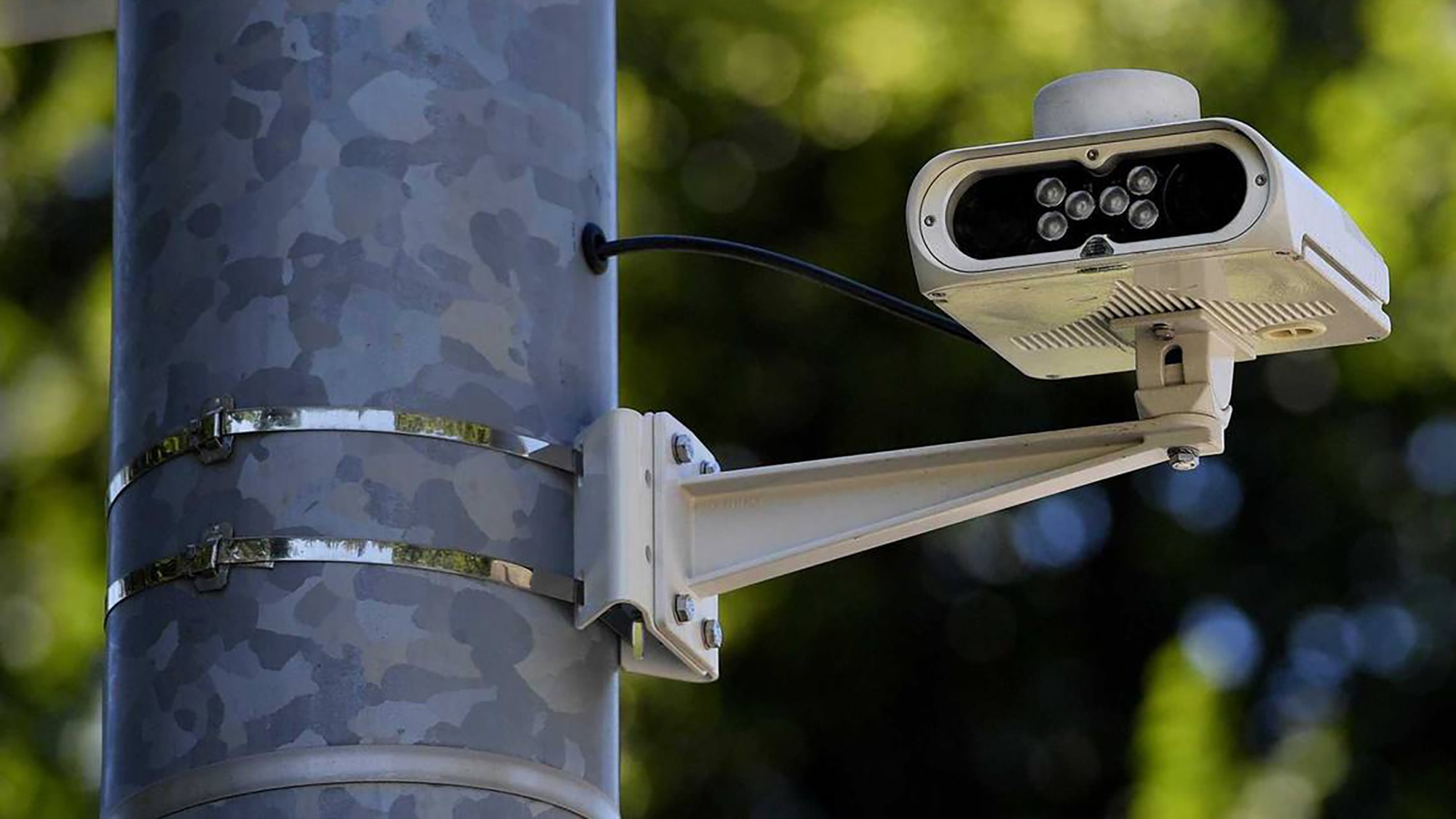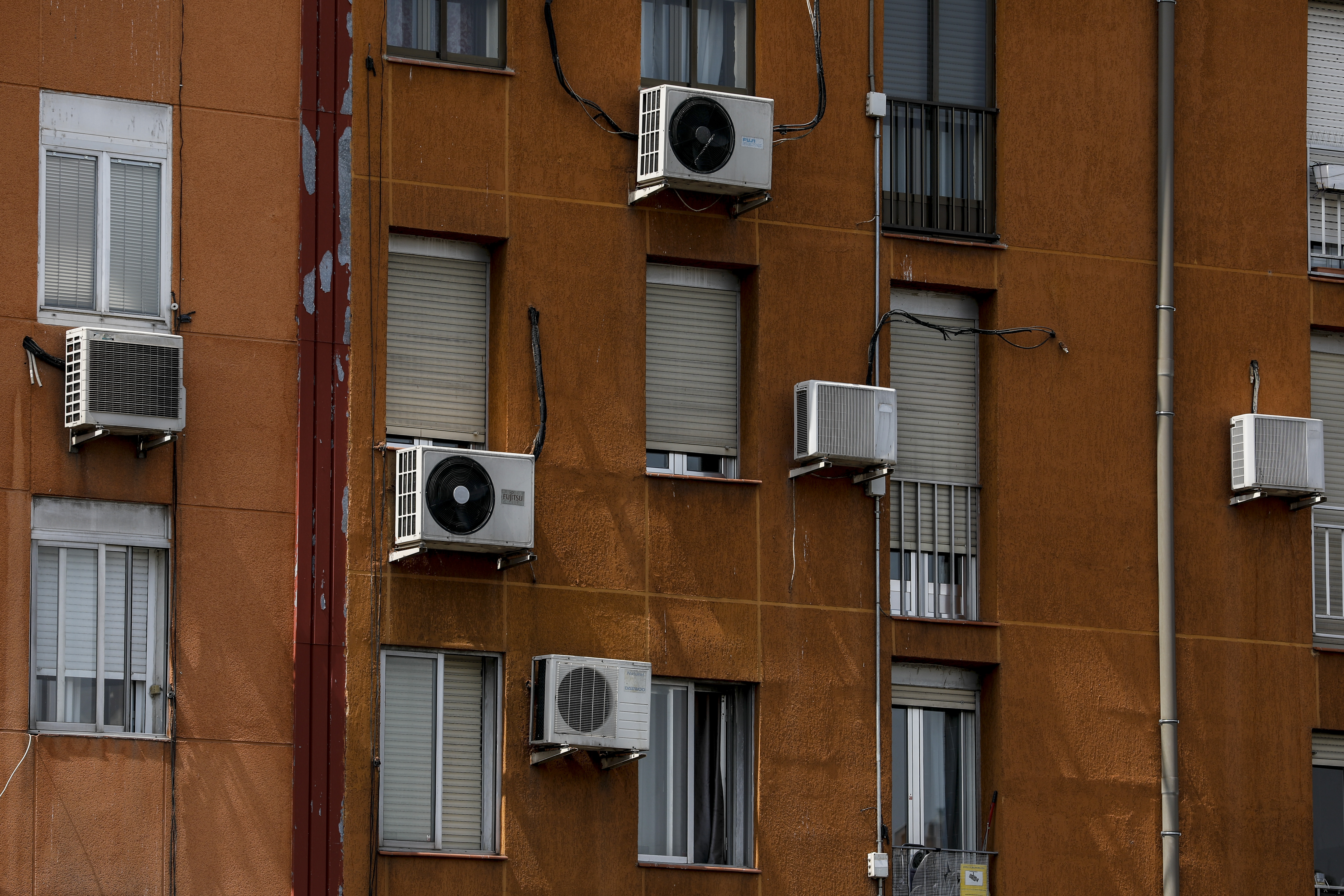Pros and cons of smart thermostats
The gadgets allow you to control temperatures remotely but are they really value for money?

A free daily email with the biggest news stories of the day – and the best features from TheWeek.com
You are now subscribed
Your newsletter sign-up was successful
Smart thermostats are increasingly popular for the extra flexibility they offer, allowing you to remotely control your home’s temperature and heating schedule, and also have different temperatures and schedules for different rooms.
Like smart meters, they can cost more than standard thermostats but can save you money in the long run, depending on how you use them. This has made them more popular as energy costs rocket during the cost-of-living crisis.
“Smart heating is everywhere,” said Living etc. And “yet there is still debate over how beneficial smart thermostats are, with some research indicating that installing one doesn’t always result in reduced energy use”, said the BBC.
The Week
Escape your echo chamber. Get the facts behind the news, plus analysis from multiple perspectives.

Sign up for The Week's Free Newsletters
From our morning news briefing to a weekly Good News Newsletter, get the best of The Week delivered directly to your inbox.
From our morning news briefing to a weekly Good News Newsletter, get the best of The Week delivered directly to your inbox.
So how easy to use and cost-effective are smart thermostats, and what are the drawbacks?
1. Pro: save money
“Does it really save me money?” wonders Digital Trends. “In short, yes it does,” it answers, “but how much specifically will vary by brand, home, and occupancy.”
You can expect “roughly 10% in electrical savings”, it explains. Most smart thermostats allow you to view and monitor how much energy you’re using, which makes it easier to see where you could save money. However, how much you save also depends on how much you spend on the gadget in the first place.
2. Con: initial cost
Smart thermostats can be “three to four times more expensive” compared to a conventional model, said Gasify. The cost “goes up even more if you’re also getting smart radiator valves”, said Which?, meaning “it will take time to recoup this extra upfront cost through saving on heating bills”.
A free daily email with the biggest news stories of the day – and the best features from TheWeek.com
The cost of a smart thermostat can range from £120 to £220, “depending on the make and model that you choose”, said Checkatrade.
3. Pro: room by room settings
If you spend most of your day in one part of the house, you won’t want to heat those rooms you rarely go into. Most models allow the user to set different temperatures for different areas of the house. Smart radiator valves mean you can control each room’s temperature and schedule individually.
With smart thermostats you can “create multiple heating zones”, explains Which?. Using multiple smart thermostats, or a smart thermostat with smart radiator valves, you can control the temperature on a room-by-room basis and make further energy savings.
4. Con: installation hassle
Although smart thermostats can be easy to use, they can be a “headache to install”, said Gasify. So “if you were thinking of installing it yourself, you might want to rethink that idea”, it advises. “Most of the time, you need a professional to come and install the thermostat,” it adds.
To soften the blow of the installation expense, Which? recommends that you ask your engineer to also help set up your heating schedule for you, as all the controls and features can take some getting used to.
5. Pro: remote control
You can control smart thermostats through an app on your phone or tablet, meaning you don’t need to get up and walk to the thermostat to make changes.
“This feature might not seem very useful while you’re in the house,” said Gasify, “but when you’re headed home after a long day at work, you can use the app from your office only to set your desired temperature, so that the house is perfectly warm or cool just as you arrive.” It means you can also turn the thermostat off if you forgot to do so before leaving the house.
6. Con: users overriding settings
Studies on how people actually use these devices paints a “mixed picture”, said the BBC. Analysis of smart thermostat data from 1,379 households in California found that users “generally undid the benefits of the gadgets by manually overriding their scheduled programme of heating or cooling”, it added.
If you are regularly overriding your system it calls into question the wisdom of using a smart thermostat in the first place. Brent Huchuk, who led a similar study, told the broadcaster that people who are good at tweaking their own system are likely to do better than a smart thermostat.
Chas Newkey-Burden has been part of The Week Digital team for more than a decade and a journalist for 25 years, starting out on the irreverent football weekly 90 Minutes, before moving to lifestyle magazines Loaded and Attitude. He was a columnist for The Big Issue and landed a world exclusive with David Beckham that became the weekly magazine’s bestselling issue. He now writes regularly for The Guardian, The Telegraph, The Independent, Metro, FourFourTwo and the i new site. He is also the author of a number of non-fiction books.
-
 How the FCC’s ‘equal time’ rule works
How the FCC’s ‘equal time’ rule worksIn the Spotlight The law is at the heart of the Colbert-CBS conflict
-
 What is the endgame in the DHS shutdown?
What is the endgame in the DHS shutdown?Today’s Big Question Democrats want to rein in ICE’s immigration crackdown
-
 ‘Poor time management isn’t just an inconvenience’
‘Poor time management isn’t just an inconvenience’Instant Opinion Opinion, comment and editorials of the day
-
 Most data centers are being built in the wrong climate
Most data centers are being built in the wrong climateThe explainer Data centers require substantial water and energy. But certain locations are more strained than others, mainly due to rising temperatures.
-
 'Vampire energy' could be causing your electric bill to rise
'Vampire energy' could be causing your electric bill to riseUnder the Radar Wasted energy could account for up to 10% of home use
-
 What's dark data and why is it bad for the environment?
What's dark data and why is it bad for the environment?The explainer Data is being used and discarded, but still clogging servers
-
 The pros and cons of license-plate reader technology
The pros and cons of license-plate reader technologyPros and Cons The technology's use recently led to the arrest of a three-time homicide suspect in Los Angeles
-
 The pros and cons of AI companions
The pros and cons of AI companionsPros and Cons Chatbots are evolving from simple assistants to friendlier digital companions.
-
 World's reduced thirst for oil may be foiled by developing countries' challenges
World's reduced thirst for oil may be foiled by developing countries' challengesSpeed Read Will developing nations slow the peak of global oil demand?
-
 The movement to make A/C energy efficient
The movement to make A/C energy efficientSpeed Read Air conditioners have been bad for the planet, but we'll likely continue to need them.
-
 Pros and cons of the emergency alert
Pros and cons of the emergency alertPros and Cons Already used successfully in US, Greece and Japan, mobile notifications could help save lives, but pose risk to domestic abuse victims and drivers